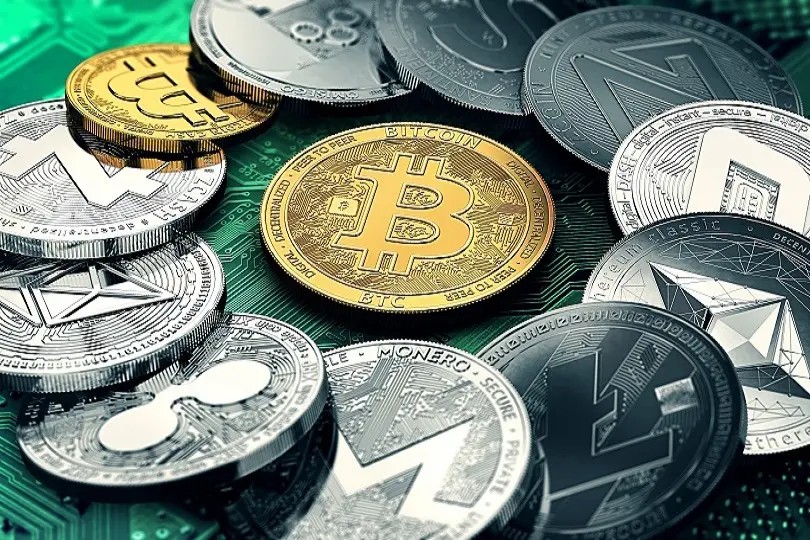"Father of Antivirus" John McAfee's ups and downs in the crypto world: once keen on making calls, but claimed his net income was negative
This article is an original piece by Chain Catcher, authored by Hu Tao.
On June 24, antivirus software pioneer and cryptocurrency industry leader John McAfee suddenly passed away in prison, becoming the most influential event in today's cryptocurrency market.
For a long time, John McAfee has been an important opinion leader in the cryptocurrency industry, frequently sharing his views on cryptocurrencies on Twitter, attracting significant attention to the crypto market due to his identity as the founder of the world's most well-known antivirus software. After John McAfee's death today, KOLs in the cryptocurrency industry, such as Binance founder Changpeng Zhao, Blockstream CEO Adam Back, and Morgan Creek founder Anthony Pompliano, expressed their condolences on Twitter.
The cause of John McAfee's sudden death remains unclear, with mainstream speculation pointing to suicide, pending investigation by local authorities. However, just hours before his death, the Spanish High Court had authorized his extradition to the United States, where he faced tax evasion charges. Previously, John McAfee had claimed that the charges against him were politically motivated, stating that if extradited, he would spend the rest of his life in prison.
John McAfee was incarcerated because the U.S. Department of Justice and the SEC filed lawsuits against him in October last year, accusing him of tax evasion and willfully failing to file tax returns, as well as earning substantial income from false and misleading cryptocurrency endorsements.
The indictment stated that McAfee's team participated in a series of "pump and dump" schemes for altcoins in 2017 and early 2018, buying large amounts of altcoins at low prices and then publicly endorsing them to McAfee's hundreds of thousands of Twitter followers. Once retail investors drove up the prices due to McAfee's tweets, the group would secretly sell off these tokens. As a result, they earned over $13 million from the victims of this fraudulent scheme.
Soon after, John McAfee was arrested by local police in Spain and has been detained ever since, while the U.S. government has been seeking his extradition. So, are the U.S. government's charges against him baseless, a deliberate persecution, or legally justified? Chain Catcher has reviewed and studied John McAfee's trajectory since entering the cryptocurrency industry and found that in recent years, John McAfee has been a "pump" specialist, rivaling Elon Musk's influence on Bitcoin and Dogecoin, but also being more erratic and profit-driven.
1. The Joke of Bitcoin Price Predictions
Starting in the second half of 2017, John McAfee resigned from his position as CEO of security company MGT and stated that he would devote all his time to the cryptocurrency field, quickly gaining public attention with his bold predictions about Bitcoin prices.
In December 2017, John McAfee predicted on Twitter that Bitcoin's price would be ten times its then-current price in 2018 and that it "would never fall below the current level," forecasting that by the end of 2020, Bitcoin would reach $1 million. In the following years, John McAfee repeatedly promoted Bitcoin in public, raising his price prediction to $2 million.
However, by 2020, John McAfee changed his previously bullish stance on Bitcoin, criticizing it multiple times and claiming it was worthless. In early June, John McAfee tweeted again, attacking Bitcoin for having the worst cryptocurrency technology and calling his previous prediction of Bitcoin reaching $1 million a ridiculous joke. He explained that if Bitcoin's market cap reached $1 million, it would exceed the entire GDP of North America, asking, "Which idiot would believe such nonsense?"
Additionally, John McAfee admitted that the whole thing was just a publicity stunt aimed at drawing more attention to the cryptocurrency field.
2. Repeatedly Promoting Cryptocurrency Projects
At the end of 2017, John McAfee's Twitter account vigorously promoted the privacy coin XVG, which saw its price rise from less than 1 cent to $0.28. Shortly thereafter, McAfee claimed that his Twitter account had been hacked and that promoting XVG was not his intention. However, recently, a well-known XVG investor and Twitter user, XVGWhale, tweeted that John McAfee had demanded $1 million worth of ETH and threatened to withdraw his support for XVG otherwise. Subsequently, XVGWhale deleted the post and claimed that his account had also been hacked.
Nevertheless, John McAfee continued to promote cryptocurrencies on Twitter, such as Bitcoin Private BCO, SAFEX, and BURST, all of which experienced significant price increases after his endorsements.
John McAfee's marketing team even listed the prices for his promotional services on their official website, charging $105,000 per tweet. The website stated that McAfee's marketing team served all stages of ICOs, with McAfee himself as the founder and CEO. An article on the website noted, "Considering that Mr. McAfee's promotional price is $105,000, the average cost for investors is lower than any other marketing channel in the crypto world."
"In the cryptocurrency industry, nothing compares to the power of McAfee's tweets," the website page stated. "Typically, a single tweet brings in over $1 million in investments for an ICO, and multiple currencies have seen their prices rise by over 100% from a single tweet."
However, by mid-2018, John McAfee stopped promoting ICO tokens, stating that due to threats from the U.S. Securities and Exchange Commission, he would no longer collaborate with ICOs or recommend them, warning that those involved in ICOs could expect to be arrested. "It's unfair, but it's the reality."
But this did not mean that John McAfee stopped promoting altogether. In November 2018, John McAfee posted a photo of himself with the official Skycoin logo tattooed on his arm, stating, "I met SkyCoin at the Malta conference, and they gave me a Sky Miner. They have some of the best technology in the crypto world. I think I'm a miner now." Subsequently, SKY quickly rose from $2.76 to around $3.21, but fell below $1 a few weeks later.
3. Launching and Joining Multiple Cryptocurrency Projects
Starting in 2018, John McAfee announced the launch or joined multiple cryptocurrency projects, most of which did not gain market recognition and faced significant criticism, failing to develop properly.
In June 2018, John McAfee joined the Bitfi team and launched the cryptocurrency hardware wallet Knox, but was later criticized by netizens for using a "cheap" smartphone standard motherboard, and there were also hacker attacks that gained underlying operational access.
In April 2019, John McAfee tweeted that he would launch a cryptocurrency credit card project.
In June 2019, John McAfee announced the launch of the cryptocurrency trading platform McAfee Magic.
In October 2019, John McAfee launched the decentralized exchange McAfee DEX.
In May 2020, the privacy coin Ghost, supported by John McAfee, went live, but was later accused of code plagiarism by the PIVX team, to which McAfee responded that developers need not make a big deal out of it, as forking existing blockchains is a common phenomenon.
4. The Economic Hardship Behind Various Abnormal Behaviors
From John McAfee's involvement in multiple projects as an advisor and his openly priced promotions on Twitter, it is evident that his pursuit of profit is quite blatant and direct, with behaviors that are shocking and inconsistent with his identity as the father of antivirus software.
However, looking at John McAfee's past financial history, his various abnormal behaviors may not be difficult to understand. Although John McAfee founded the world's most well-known cybersecurity company, McAfee Associates, which was acquired by Intel for $7.68 billion in 2010, public records show that John McAfee sold all his shares in 1994, the second year after McAfee Associates went public, missing out on the subsequent stock price appreciation.
In August 2009, The New York Times reported that due to the impact of the 2007-2008 financial crisis on his investments, John McAfee's personal wealth had plummeted from a peak of $100 million to $4 million. After that, John McAfee joined companies like QuorumEx, Cognizant, Everyke, and MGT Capital Investments, but did not stay long at any of them.
The U.S. Justice Department's charges against John McAfee include long-term failure to file taxes, which John McAfee has publicly acknowledged, stating that his net income is negative.
In early 2019, John McAfee tweeted that he had not filed taxes for eight years, explaining: 1. Taxes are illegal. 2. I have already paid tens of millions of dollars in taxes, and the services received as a taxpayer are terrible. 3. I am no longer making money. 4. I live off the cash from McAfee's company. 5. My net income is negative.
From this, it is not difficult to see that John McAfee's previous endorsements of various ICO tokens and his repeated launches of new projects were likely driven by economic hardship. From once being the father of antivirus software to falling into such a predicament, John McAfee's life experiences are indeed lamentable.










